SESSION #2
Building Toward Health Equity and an Inclusive Recovery
Wednesday, October 13, 2021 | 8:30 – 11:45 am PT
QUICKLINKS:
Program Recordings
Opening Remarks:
Session Introduction
FIRESIDE CHAT:
VACCINE EQUITY
PANEL: AMERICA’S CHRONIC
DISEASE CRISIS
PANEL: STRENGTHENING GLOBAL PANDEMIC COORDINATION, RESOURCE ACCESS
LIGHTNING TALKS: READYING FOR COVID-19’S KNOCK-ON EFFECTS
CLOSING REMARKS
FROM THE DEANS
Overview
Virtual Event Program
Date | Wednesday, October 13, 2021
Time | 8:30 am – 11:45 am PT
Opening Remarks: Session Introduction
8:30 – 8:35 am
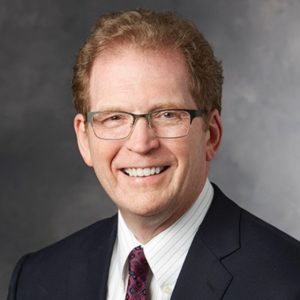
Lloyd Minor, MD
Dean, Stanford School of Medicine
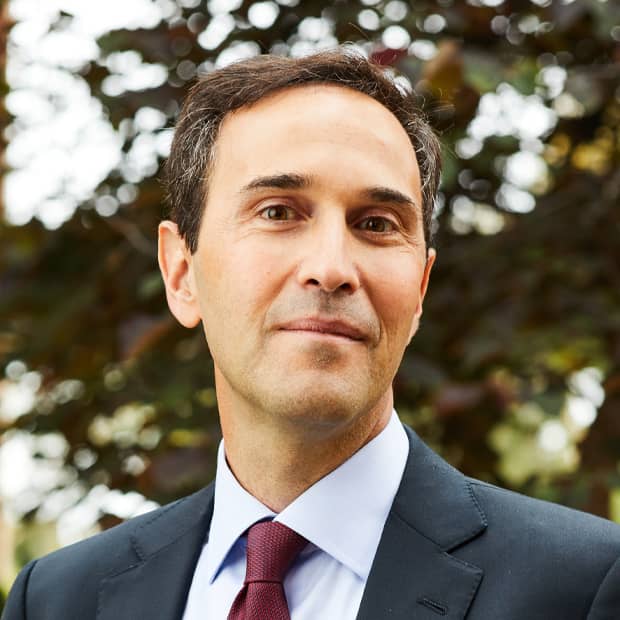
Jonathan Levin, PhD
Dean, Stanford Graduate School of Business
Jonathan Levin is the Philip H. Knight Professor and Dean of Stanford Graduate School of Business. He was appointed as the 10th dean of the school in September 2016. Levin joined the Stanford faculty as an assistant professor in 2000. He was later appointed the Holbrook Working Professor of Price Theory in the Department of Economics, and Department Chair from 2011 to 2014. He has taught market design, game theory, microeconomics, and industrial organization at the undergraduate and graduate levels. He was also professor, by courtesy, at the Stanford Graduate School of Business, a senior fellow at the Stanford Institute for Economic Policy Research, and director of the Industrial Organization Program at the National Bureau for Economic Research.
FIRESIDE CHAT: VACCINE EQUITY
8:35 – 9:05 AM
The pandemic’s devastating and disproportionate impact on people of color and vulnerable populations has served as a stark reminder of health inequity in the United States. In this fireside chat with Dr. Marcella Nunez-Smith, Senior Advisor to the White House COVID-19 Response Team, we will discuss lessons learned from the government’s work to vaccinate minority communities and address systemic issues that have widened health disparities during the pandemic.
Moderator
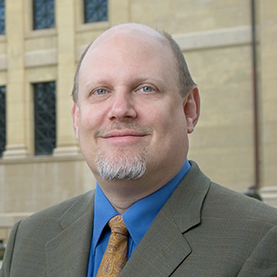
David Magnus, PhD
Professor of Medicine and Biomedical Ethics and Professor of Pediatrics
Stanford Medicine
David Magnus is the Thomas A. Raffin Professor of Medicine and Biomedical Ethics, Professor of Pediatrics, Director of the Stanford Center for Biomedical Ethics, an Associate Dean of Research and a member of the Ethics Committee for the Stanford Hospital. He is currently the Vice-Chair of the Institutional Review Board for the NIH Precision Medicine Initiative (“All of Us Research Program”), and the Editor in Chief of the American Journal of Bioethics. He has published articles on a wide range of topics in bioethics, including research ethics, genetics, stem cell research, organ transplantation, end of life, and patient communication.
Guest
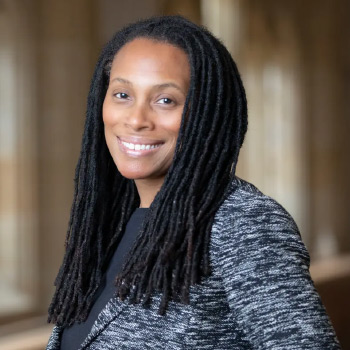
Marcella Nunez-Smith, MD
Senior Advisor
White House COVID-19 Response Team
Marcella Nunez-Smith is a Senior Advisor to the White House COVID-19 Response Team, the Associate Dean for Health Equity Research, and Professor of Internal Medicine, Epidemiology and Public Health at the Yale School of Medicine. Following her work as co-chair of the Biden-Harris Transition COVID-19 Advisory Board, she was appointed as chair of the administration’s COVID-19 Health Equity Task Force. Prior to that, she chaired the Community Committee on the state of Connecticut’s ReOpen CT Advisory Group. She is the Founding Director of the Equity Research and Innovation Center (ERIC) among several other health care and research leadership positions within and outside Yale. Her research focuses on promoting health and health care equity for structurally marginalized communities. She is the principal investigator on many NIH and foundation-funded research projects, including an NIH/NCI-funded project to develop a tool to assess patient-reported experiences of discrimination in healthcare.
PANEL: AMERICA’S CHRONIC DISEASE CRISIS
9:05 – 9:55 AM
More than one in two U.S. adults lives with a chronic health condition – diseases that disproportionately impact communities of color. It is a reality that has made COVID-19 especially devastating in America. Addressing a health crisis of this magnitude demands unprecedented action—with a focus that extends beyond medicine to get at the roots of health inequity and illness. What are some of the initial steps our country must take to begin achieving progress?
Moderator

Samantha Artiga
Vice President and Director
Racial Equity and Health Policy Program
Kaiser Family Foundation
Samantha Artiga serves as Vice President and Director of the Racial Equity and Health Policy Program at the Kaiser Family Foundation. In this role, she leads KFF’s work to provide timely and reliable data, information, and policy analysis on health and health care disparities affecting people of color and underserved groups and efforts to advance racial equity in health and health care. Her work focuses on the intersection of racism and discrimination, social and economic inequities, and health. She also has conducted extensive work related to the health and health care needs of low-income populations and immigrant families and previously served as Associate Director of KFF’s Program on Medicaid and the Uninsured. She holds a master’s degree in health policy from the George Washington University.
Panelists

Meena Seshamani, MD, PhD
Director, Center for Medicare,
Centers for Medicare and Medicaid Services
Meena Seshamani is an accomplished, strategic leader with a deep understanding of health economics and a heart-felt commitment to outstanding patient care. Her diverse background as a health care executive, health economist, physician and health policy expert has given her a unique perspective on how health policy impacts the real lives of patients. She most recently served as Vice President of Clinical Care Transformation at MedStar Health, where she conceptualized, designed, and implemented population health and value-based care initiatives and served on the senior leadership of the 10 hospital, 300+ outpatient care site health system. She also brings decades of policy experience to her role, including recently serving on the leadership of the Biden-Harris Transition HHS Agency Review Team. Prior to MedStar Health, she was Director of the Office of Health Reform at the US Department of Health and Human Services, where she drove strategy and led implementation of the Affordable Care Act across the Department, including coverage policy, delivery system reform, and public health policy.
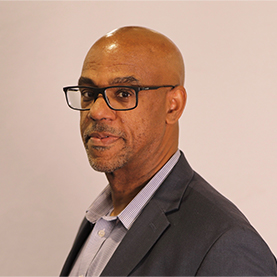
David Saunders, MEd
Director of Office of Health Equity,
Pennsylvania Department of Health
In May of 2016 David Saunders joined the Pennsylvania Department of Health as the Director of Health Equity. In addition to more than 30 years of non-profit management experience, David brings with him extensive knowledge in the fields of education, public health, disparities and youth development. He has collaborated on health disparity reduction initiatives, developed cutting-edge programs targeting underserved communities, and established state training institutes, collaborating with state, county and local officials. He comes to the Commonwealth after serving as School Health Education consultant with the California Department of Education and having held leadership positions at the American Cancer Society, YMCA. In April 2020 David took on the massive task of developing a collective response to COVID 19 and the implications of the pandemic on vulnerable populations in the Commonwealth. 15 population groups were explored from a variety of angles using 12 stakeholder groups with an eclectic membership including government, academia, non-profit, and healthcare. 60 recommendations were developed that seek to mitigate the affects of the pandemic both now and in the future.

Alyce Adams, PhD
Professor of Epidemiology and
Population Health
Stanford Medicine
Alyce Adams is the inaugural Stanford Medicine Innovation Professor and Professor of Epidemiology and Population Health and of Medicine (Primary Care and Outcomes Research), as well as Associate Director for Health Equity and Community Engagement in the Stanford Cancer Institute. Focusing on racial and socioeconomic disparities in chronic disease treatment outcomes, her interdisciplinary research seeks to evaluate the impact of changes in drug coverage policy on access to essential medications, understand the drivers of disparities in treatment adherence among insured populations, and test strategies for maximizing the benefits of treatment outcomes while minimizing harms through informed decision-making. Prior to joining Stanford School of Medicine, she was Associate Director for Health Care Delivery and Policy and a Research Scientist at the Kaiser Permanente Division of Research, as well as a Professor at the Bernard J. Tyson Kaiser Permanente School of Medicine. From 2000 to 2008, she was an Assistant Professor in the Department of Population Medicine (formerly Ambulatory Care and Prevention) at Harvard Medical School and Harvard Pilgrim Health Care. She received her PhD in Health Policy and an MPP in Social Policy from Harvard University.
BREAK
9:55 – 10:05 AM
PANEL: STRENGTHENING GLOBAL PANDEMIC COORDINATION, RESOURCE ACCESS
10:05 – 10:55 AM
A global crisis demands global solutions. And yet, worldwide, the distribution of resources needed to respond to COVID-19 has been uneven – whether it is vaccines, personal protective equipment, ventilators, or access to financial relief. What have been the consequences of a pandemic response largely driven by domestic interests? How do we begin to forge a more globally inclusive approach and think and act beyond borders?
Moderator
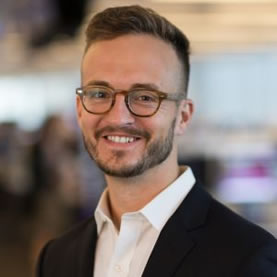
Drew Armstrong
Senior Editor, Health Care
Bloomberg News
Drew Armstrong is Bloomberg News’s senior editor for health care. Based in New York, he helps oversee Bloomberg’s global coverage of the pandemic and the rollout of vaccines. He’s written and edited stories about drug and biotechnology companies, science and medicine, and the finance of health care. He joined Bloomberg in 2010 after a half-decade covering health policy in Washington.
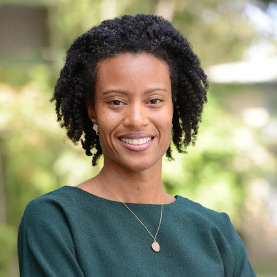
Loyce Pace, MPH
Director, Office of Global Affairs,
U.S. Department of Health and Human Services
Loyce Pace is responsible for advancing the U.S. international health agenda through multilateral and bilateral forums. Reporting directly to the Secretary of Health & Human Services (HHS), she is the Office of Global Affairs’ lead on setting priorities and policies that promote American public health agencies and interests worldwide. She oversees HHS’ engagement with foreign governments and international institutions as well policymaking bodies such as the G7, G20, United Nations General Assembly (UNGA), and World Health Assembly. Previously, she served as President & Executive Director of Global Health Council (GHC) and was also a member of the Biden-Harris Transition COVID-19 Advisory Board. At GHC, she advocated for increased federal investments in global health, in the face of budget cuts to the U.S. Centers for Disease Control & Prevention, United States Agency for International Development, and World Health Organization (WHO). Prior to her role at GHC, she spent over a decade working with community-based organizations and grassroots leaders in countries across Africa and Asia on campaigns calling for person-centered access to health.
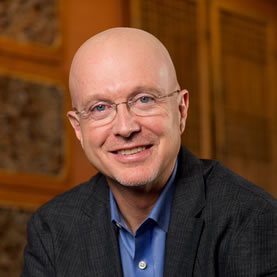
Steve Davis, JD
Senior China Strategy Advisor and
Interim Director,
Bill & Melinda Gates Foundation
Steve Davis is senior China strategy advisor and interim director for the China Country Office at the Bill & Melinda Gates Foundation. This involves working with a wide range of partners across China’s public, private, and social sectors to advance health and development outcomes both in China and globally. Prior to that, he was CEO of PATH, a global innovation enterprise that works to advance health equity through innovation and partnerships from 2012 to 2020. He has been a leader and strategist for a wide range of private and nonprofit organizations, formerly serving as CEO of global digital media firm Corbis, director of social innovation for McKinsey & Company, and interim CEO of the Infectious Disease Research Institute. He is a lecturer in social innovation at the Stanford Graduate School of Business and serves as a Distinguished Fellow with the World Economic Forum. He also co-chairs the WHO’s Digital Health Advisory Group serves on the boards of several global organizations.
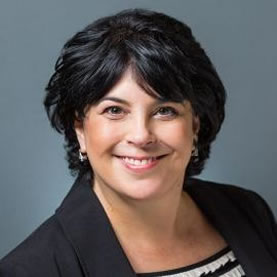
Michele Gelfand, PhD
Professor of Cross-Cultural Management
and Organizational Behavior
Stanford Graduate School of Business
Michele Gelfand is the John H. Scully Professor in Cross-Cultural Management and Professor of Organizational Behavior at Stanford Graduate School of Business. She uses field, experimental, computational, and neuroscience methods to understand the evolution of culture — as well as its multilevel consequences for human groups. Her work has been published in many scientific outlets, including Nature Human Behavior and Psychological Science among many others, and she is the author of Rule Makers, Rule Breakers: How Tight and Loose Cultures Wire the World, and the co-editor of several other books and series. She is the past president of the International Association for Conflict Management, past division chair of the Conflict Division of the Academy of Management, and past treasurer of the International Association for Cross-Cultural Psychology.
LIGHTNING TALKS: READYING FOR COVID-19’S KNOCK-ON EFFECTS
10:55 – 11:40 AM
COVID-19 has had a catastrophic impact on human health, but its largest consequences are likely to emerge years from now, particularly in underserved communities. As U.S. households rebound from years of disrupted child education, lost economic opportunity, diminished health care access, and a worsening housing crisis, how do we ensure that our recovery is equitable and does not widen existing gaps? Are we prepared to address the pandemic’s downstream effects? And how can we better mitigate these issues in responding to future health threats? Hear ideas and solutions in these four 10-minute lightning talks from experts and innovators.
11:00 - 11:10 AM
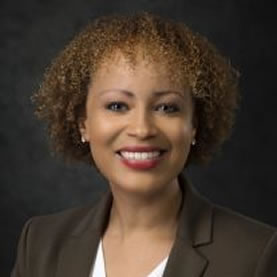
Nicole Cooper, DrPH, MPH
Senior Vice President, Corporate Affairs
UnitedHealth Group
Nicole Cooper currently serves as a Senior Vice President of Corporate Affairs at UnitedHealth Group. She formerly served as Head of Healthcare Policy at Lyft. In this role, she developed and managed Lyft’s federal and state healthcare policy agenda, working to expand Lyft’s presence in the healthcare sector. She also led Lyft’s healthcare-related strategic partnerships and alliances supporting the company’s social impact strategy and environmental, social and corporate governance (ESG) initiatives. She previously served as Vice President of Corporate Social Responsibility at UnitedHealthcare, where she led national signature partnerships and local and state social investment strategies, under the UHC Empowering Health commitment, to bolster UHC’s social impact across the US. Prior to joining UnitedHealthcare, Dr. Cooper was an Obama administration political appointee, and part of the US Department of Health and Human Services team responsible for implementation of the Affordable Care Act. At HHS, Dr. Cooper served as a policy advisor to key leaders in the agency, including the Chief of Staff at the Centers for Medicare & Medicaid Services (CMS) and the Deputy Assistant Secretary for Minority Health.
11:10 - 11:20 AM

Ruth Ann Norton
President and CEO
Green & Healthy Homes Initiative
Ruth Ann Norton is President and CEO of the Green & Healthy Homes Initiative (GHHI), a nonprofit organization founded in 1986 that is dedicated to the elimination of childhood lead poisoning and the creation of healthy, safe and energy-efficient housing. A strong advocate for healthy housing and health and racial equity, she broadened the organization’s mission by designing and implementing an innovative GHHI model in 2009 in partnership with HUD, CDC and the Council on Foundations. GHHI works in over 65 partner jurisdictions and its model is built on a framework of cross-sector collaboration that effectively integrates resources to comprehensively deliver lead hazard reduction, healthy homes, weatherization and housing rehabilitation interventions.
11:20 - 11:30 AM
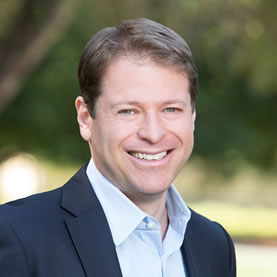
Gabriel Weintraub, PhD
Professor of Operations, Information and Technology
Stanford Graduate School of Business
Gabriel Weintraub is a professor of operations, information and technology at Stanford Graduate School of Business. He holds a PhD in management science and engineering and a MA in economics, both from Stanford University. His research is in the areas of data science, operations, management science, industrial organization, and market design. He is particularly interested in developing mathematical, computational, and econometric models to study the economics and the optimization of digital platforms. After obtaining his PhD at Stanford, he spent ten years as faculty at Columbia Business School. He is a recipient of the IFORS Prize for “Operations Research in Development 2002,” given every three years to the best application of operations research/management science in a developing country. He also received the MSOM Young Scholar Prize 2015 that “recognizes exceptional young researchers who have made outstanding contributions to scholarship in operations management.” He has advised and worked with several online platforms.
11:30 - 11:40 AM

Denise Forte
CEO
The Education Trust
Denise Forte is the interim CEO at The Education Trust. With more than two decades of experience in the federal legislative and executive branches advancing progressive education and family policy, Denise leads the organization’s efforts to engage policymakers and diverse coalitions of advocates in demanding and securing equity-advancing policy change at the national and state levels. Prior to Ed Trust, Denise was a senior fellow and director of public affairs for The Century Foundation, a progressive think tank. She also spent 20 years in progressively senior congressional staff roles, most recently as the staff director for the House Committee on Education and the Workforce (Minority), providing strategic advice and counsel to the Ranking Member, Rep. Bobby Scott (D-VA), managing and directing the legislative and policy agenda for Committee Democrats and as Education Policy Director for Chairman George Miller. Denise also served in the Obama administration at the U.S. Department of Education, where she held the positions of Principal Deputy Assistant Secretary and Acting Assistant Secretary in the Office of Planning, Evaluation and Policy Development.
CLOSING REMARKS FROM THE DEANS
11:40 – 11:45 AM